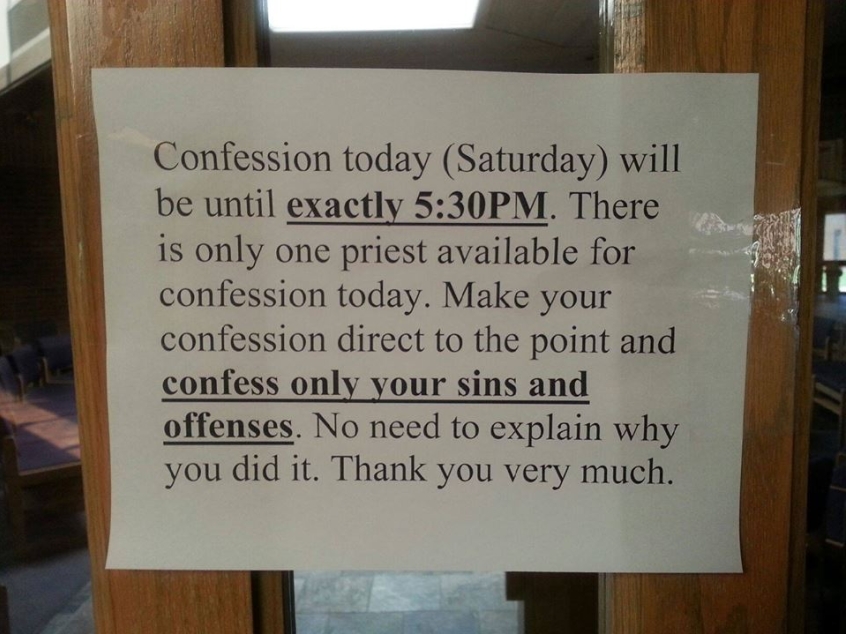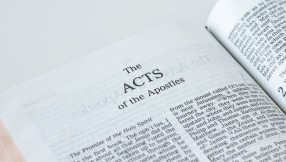Don't bother telling God why you sinned. He isn't interested
I was rather taken with a notice shared on social media from a hard-pressed Catholic priest in the US. It said: Confession today (Saturday) will be until exactly 5:30PM. There is only one priest available for confession today. Make your confession direct to the point and confess only your sins and offenses. No need to explain why you did it. Thank you very much" (emphases original).

As a good Baptist, I've never confessed to a priest and have all a Protestant's wariness about the whole idea. But I think there's a genuine spiritual insight underneath the testiness of a priest who has too much to do and has lost patience with time-wasters.
It's this: confession is not therapy.
Protestants believe in confession too, of course, only we tend to cut out the middle man and go straight to God. We think there are good theological reasons for this, but that shouldn't make us blind to the failings of our system. All to often the 'God' to whom we confess is a creature of our own own invention, made in our own likeness. There's arguably a potential lack of accountability for our sins that makes them easier to excuse and perhaps easier to commit again.
But whether our confession involves a human intermediary or not, our busy priest has put his finger on a very human instinct. We want to explain why we've done wrong, and in doing that we are inevitably trying to excuse it. If there are reasons for our sin, it is less sinful. We can appear better in our own eyes and in the eyes of our interlocutor, whether human or divine. Explaining our actions is a way of establishing common ground. "I'm like you, and in my position you might have done the same," we're saying.
But that's not how confession works. Certainly it may be good for the soul. If you subscribe to the hydraulic metaphor of human emotion – that our guilt produces a pent-up pressure that can only be released by letting it all out – the act of sharing what we've done and how we feel about it might help.
But it isn't the point of confession.
When we confess, we are acknowledging, in all simplicity and humility, that we have done wrong, and in the sight of God. There is no common ground with him, because he is light, and in him is no darkness at all. We are sinners and we need forgiveness. We ask for it and we receive it, but we have to ask for it honestly, with no mental reservations or excuses.
Of course there is a place for therapy. At another time and in another place, a priest or minister might be glad to sit down with you and help you work our why you did what you did and how you can avoid doing it again.
But confession is just confession. Admit you're a sinner, ask for God's mercy and leave with the assurance of forgiveness. Don't pretend to be better than you are. It doesn't convince anyone.
Follow Mark Woods on Twitter: @RevMarkWoods













